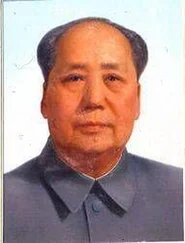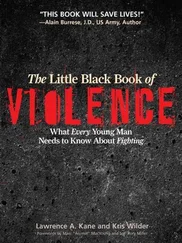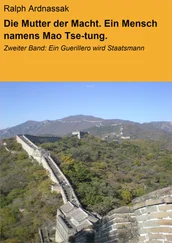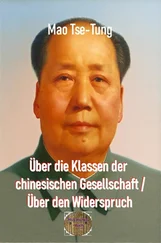Tse-tung Mao - The Little Red Book
Здесь есть возможность читать онлайн «Tse-tung Mao - The Little Red Book» весь текст электронной книги совершенно бесплатно (целиком полную версию без сокращений). В некоторых случаях можно слушать аудио, скачать через торрент в формате fb2 и присутствует краткое содержание. Жанр: Политика, на английском языке. Описание произведения, (предисловие) а так же отзывы посетителей доступны на портале библиотеки ЛибКат.
- Название:The Little Red Book
- Автор:
- Жанр:
- Год:неизвестен
- ISBN:нет данных
- Рейтинг книги:5 / 5. Голосов: 1
-
Избранное:Добавить в избранное
- Отзывы:
-
Ваша оценка:
- 100
- 1
- 2
- 3
- 4
- 5
The Little Red Book: краткое содержание, описание и аннотация
Предлагаем к чтению аннотацию, описание, краткое содержание или предисловие (зависит от того, что написал сам автор книги «The Little Red Book»). Если вы не нашли необходимую информацию о книге — напишите в комментариях, мы постараемся отыскать её.
The Little Red Book — читать онлайн бесплатно полную книгу (весь текст) целиком
Ниже представлен текст книги, разбитый по страницам. Система сохранения места последней прочитанной страницы, позволяет с удобством читать онлайн бесплатно книгу «The Little Red Book», без необходимости каждый раз заново искать на чём Вы остановились. Поставьте закладку, и сможете в любой момент перейти на страницу, на которой закончили чтение.
Интервал:
Закладка:
Ibid ., pp. 88-90.*
Letting a hundred flowers blossom and a hundred schools of thought contend is the policy for promoting the progress of the arts and the sciences and a flourishing socialist culture in our land. Different forms and styles in art should develop freely and different schools in science should contend freely. We think that it is harmful to the growth of art and science if administrative measures are used to impose one particular style of art or school of thought and to ban another. Questions of right and wrong in the arts and sciences should be settled through free discussion in artistic and scientific circles and through practical work in these fields. They should not be settled in summary fashion.
On the Correct Handling of Contradictions Among the People (February 27, 1957), 1st pocket ed., pp. 49-50.
An army without culture is a dull-witted army, and a dull-witted army cannot defeat the enemy.
"The United Front in Cultural Work" (October 30, 1944), Selected Works, Vol. III, p. 235.
33. STUDY
In transforming a backward agricultural China into an advanced industrialized country, we are confronted with arduous tasks and our experience is far from adequate. So we must be good at learning.
"Opening Address at the Eighth National Congress of the Communist Party of China " (September 15, 1956).
Conditions are changing all the time, and to adapt one's thinking to the new conditions, one must study. Even those who have a better grasp of Marxism and are comparatively firm in their proletarian stand have to go on studying, have to absorb what is new and study new problems.
Speech at the Chinese Communist Party's National Conference on Propaganda Work (March 12, 1957), 1st pocket ed., p. 8.*
We can learn what we did not know. We are not only good at destroying the old world, we are also good at building the new.
"Report to the Second Plenary Session of the Seventh Central Committee of the Communist Party of China " (March 5, 1949), Selected Works, Vol. IV, p. 374.
Now, there are two different attitudes towards learning from others. One is the dogmatic attitude of transplanting everything, whether or not it is suited to our conditions. This is no good. The other attitude is to use our heads and learn those things which suit our conditions, that is, to absorb whatever experience is useful to us. That is the attitude we should adopt.
On the Correct Handling of Contradictions Among the People (February 27, 1957), 1st pocket ed., p. 75.
The theory of Marx, Engels, Lenin and Stalin is universally applicable. We should regard it not as a dogma, but as a guide to action. Studying it is not merely a matter of learning terms and phrases but of learning Marxism-Leninism as the science of revolution. It is not just a matter of understanding the general laws derived by Marx, Engels, Lenin and Stalin from their extensive study of real life and revolutionary experience, but of studying their standpoint and method in examining and solving problems.
"The Role of the Chinese Communist Party in the National War" (October 1938), Selected Works, Vol. II, pp. 208-09.
If we have a correct theory but merely prate about it, pigeonhole it and do not put it into practice, then that theory, however good, is of no significance.
"On Practice" (July 1937), Selected Works, Vol. I, p. 304.
It is necessary to master Marxist theory and apply it, master it for the sole purpose of applying it. If you can apply the Marxist-Leninist viewpoint in elucidating one or two practical problems, you should be commended and credited with some achievement. The more problems you elucidate and the more comprehensively and profoundly you do so, the greater will be your achievement.
"Rectify the Party's Style of Work" (February 1, 1942), Selected Works, Vol. III, p. 38.
How is Marxist-Leninist theory to be linked with the practice of the Chinese revolution? To use a common expression, it is by "shooting the arrow at the target". As the arrow is to the target, so is Marxism-Leninism to the Chinese revolution. Some comrades, however, are "shooting without a target", shooting at random, and such people are liable to harm the revolution.
Ibid ., p. 42.
Those experienced in work must take up the study of theory and must read seriously; only then will they be able to systematize and synthesize their experience and raise it to the level of theory, only then will they not mistake their partial experience for universal truth and not commit empiricist errors.
Ibid .
Reading is learning, but applying is also learning and the more important kind of learning at that. Our chief method is to learn warfare through warfare. A person who has had no opportunity to go to school can also learn warfare - he can learn through fighting in war. A revolutionary war is a mass undertaking; it is often not a matter of first learning and then doing, but of doing and then learning, for doing is itself learning.
"Problems of Strategy in China 's Revolutionary War" (December 1936), Selected Works, Vol. I, pp. 189-90.
There is a gap between the ordinary civilian and the soldier, but it is no Great Wall, and it can be quickly closed, and the way to close it is to take part in revolution, in war. By saying that it is not easy to learn and to apply, we mean that it is hard to learn thoroughly and to apply skilfully. By saying that civilians can very quickly become soldiers, we mean that it is not difficult to cross the threshold. To put the two statements together, we may cite the Chinese adage, "Nothing in the world is difficult for one who sets his mind to it." To cross the threshold is not difficult, and mastery, too, is possible provided one sets one's mind to the task and is good at learning.
Ibid ., p. 190.
We must learn to do economic work from all who know how, no matter who they are. We must esteem them as teachers, learning from them respectfully and conscientiously. We must not pretend to know when we do not know.
"On the People's Democratic Dictatorship" (June 30, 1949), Selected Works, Vol. IV, p. 423.
Knowledge is a matter of science, and no dishonesty or conceit whatsoever is permissible. What is required is definitely the reverse - honesty and modesty.
"On Practice" (July 1937), Selected Works, Vol. I, p. 300.
Complacency is the enemy of study. We cannot really learn anything until we rid ourselves of complacency. Our attitude towards ourselves should be "to be insatiable in learning" and towards others "to be tireless in teaching".
"The Role of the Chinese Communist Party in the National War" (October 1938), Selected Works, Vol. II, p. 210.
Some people have read a few Marxist books and think themselves quite learned but what they have read has not penetrated, has not struck root in their minds, so that they do not know how to use it and their class feelings remain as of old. Others are very conceited and having learned some book-phrases, think themselves terrific and are very cocky; but whenever a storm blows up, they take a stand very different from that of the workers and the majority of the peasants. They waver while the latter stand firm, they equivocate while the latter are forthright.
Speech at the Chinese Communist Party's National Conference on Propaganda Work (March 12, 1957), 1st pocket ed., pp. 7-8.
In order to have a real grasp of Marxism, one must learn it not only from books, but mainly through class struggle, through practical work and close contact with the masses of workers and peasants. When in addition to reading some Marxist books our intellectuals have gained some understanding through close contact with the masses of workers and peasants and through their own practical work, we will all be speaking the same language, not only the common language of patriotism and the common language of the socialist system, but probably even the common language of the communist world outlook. If that happens, all of us will certainly work much better.
Читать дальшеИнтервал:
Закладка:
Похожие книги на «The Little Red Book»
Представляем Вашему вниманию похожие книги на «The Little Red Book» списком для выбора. Мы отобрали схожую по названию и смыслу литературу в надежде предоставить читателям больше вариантов отыскать новые, интересные, ещё непрочитанные произведения.
Обсуждение, отзывы о книге «The Little Red Book» и просто собственные мнения читателей. Оставьте ваши комментарии, напишите, что Вы думаете о произведении, его смысле или главных героях. Укажите что конкретно понравилось, а что нет, и почему Вы так считаете.











